Does cycling depend too much on technology?
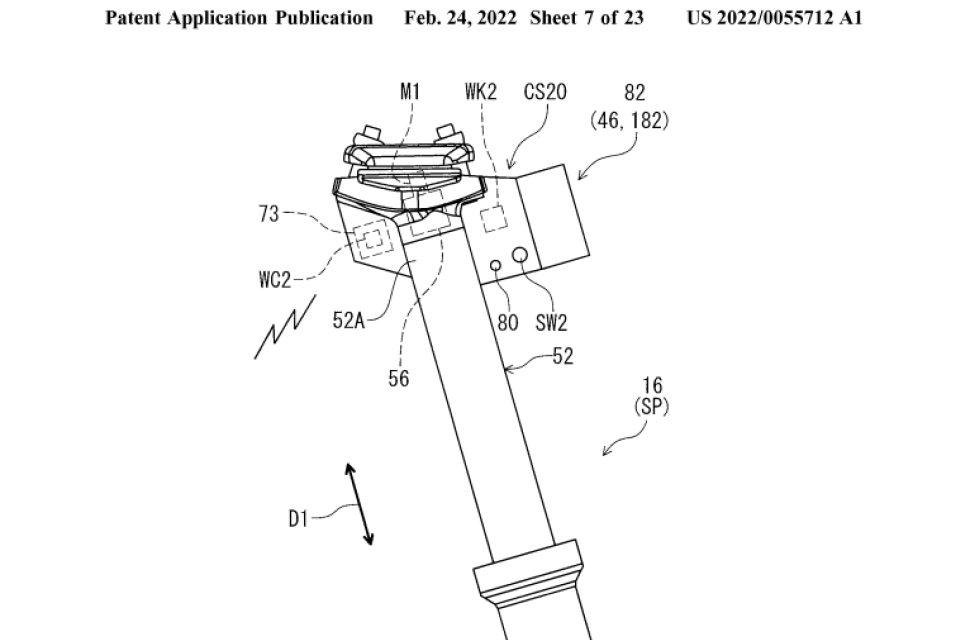
Cycling may have started as a simple meld of steel tubes, wheels and a chain but the technological pace race has transformed the humble past time into one of the fastest developing and lucrative businesses in the world. Like the latest smartphone, road, gravel and mountain bikes are coming laden with an increasing number of technologies ranging from state-of-the-art materials and electronically controlled gears and suspension. One thing's for sure, however – the cycling marketplace is saturated with kit and components that promise to make your life on the bike better. This raises one question: does cycling's reliance on technology improve or hinder the simple act of riding a bike?
- Wait... How much is the new SRAM T-Type kit?
- Are gravel bikes old-school mountain bikes?
- 7 trailside fixes every cyclist should know
New technologies are responsible for progression
Let’s go back to the late ‘70s when Tom Ritchey, Gary Fisher and Charlie Kelly began to build mountain bike frames. Those frames comprised welded steel tubes and closely resembled their road-going counterparts. Dropper posts, hydraulic disc brakes and suspension components were still a couple of decades out and the riding was vastly different. Some may even say the riding back then is what we now refer to as modern-day gravel.
And it’s only through the advancements in technologies and new products, like dropper posts, disc brakes and suspension components that allowed riders to challenge themselves further. Take the progression of downhill racing for example, where in the ‘90s it was going down a grass hill as fast as possible to describe it crudely, whereas now we have insane events such as Red Bull Hardline. Even Tomac would have a hard time descending the recent Tasmania course on what he had back in the day.
Electronics are taking over
When we talk about modern bicycle technology, it’s simply impossible to ignore the effect of ever-shrinking batteries and Bluetooth. Now, SRAM’s AXS tech is well established, ushering in wireless actuation of dropper posts, the shifting of drivetrains and now the adjustment of suspension. Plus, there are a handful of other brands kitting dropper posts with batteries and wireless goodness. And then there’s e-MTBs which is another kettle of fish altogether but once distilled it’s essentially the same thing – batteries on bikes.
There’s still a large contingent of folk who shun this form of tech but one thing is for sure; it improves the quality of life both in terms of the riding experience and longevity of the components. Employing batteries and Bluetooth connections means that traditionally cable-operated components no longer rely on cables to work and this is a good thing for several reasons. First off, cables stretch over time, can snap and they cost money to replace. Of course, ditching cables and their housings shave off a few grams of weight, so wireless groupsets and components pose less maintenance and should save a little bit of cash in the very, very, very long run.
I could go on, discussing the benefits of all that wireless kit offers but there’s one massive elephant in the room: battery life. Range anxiety isn’t only reserved for e-bikers as any battery will eventually run out of juice but, while that can be very easily compared to a cable snapping, I doubt you’ll ever leave your derailleur cable on charge only to find you haven’t put it back in place after rolling the bike out of the van.
Batteries add another level of admin to any cycling life and since running SRAM GX Transmission, making sure I’ve got a charged battery and then one spare is part of my daily protocol. Add a motor’s battery and a battery for the dropper, too, and I’d be a slave to the battery gods in no time.
A real issue that electronics raise is that it's not as straightforward as fiddling with a cable. As much as an impact as AXS, Di2 and other very cool things have made to the cycling landscape, they require a level of literacy to make the most of it. Granted, digital illiteracy is something that's quickly fading... The fact that there's an app for everything is another thing to worry about. Some of these wireless components work best combined with the app on your phone and, as a sport that's all about moving away from screen time, is this the best way of going about it?
Technology gives the consumer so much more to consider when buying something
As I’ve said before, cycling revolves around technology, borrowing tech from other sports such as F1. While all of this tech has resulted in the modern bike that we know and very much love, it’s also resulted in proprietary technologies and tonnes of questions from the consumer before making a purchase.
For brands, this is a great thing as they can educate and hook in potential buyers through clever marketing of their cool new underside idler shifter that’ll 'make you faster'. But, realistically, brands are trying to build the best bikes they can while trying to offer the consumer something different and attractive. If that means adding a component that’s proprietary to that bike, so be it.
But, for the average customer, this adds to quite a large problem in the marketplace. It’s saturated and, with so many bike brands fighting for the same space, adding all of this wonderful stuff to their bikes takes away the simplicity of merely finding a bike and buying it. There’s just so much to consider. Do you want a bike with an idler pulley? Or a Yeti with its Switch Inifnity unit? How about a VPP linkage that does this or a Horst link that does that?
There’s just so much education and research that now needs to happen before a potential customer starts to think about dropping the cash. And brands are combatting that through demo days and the like. There's so much personal taste involved. That’s without even touching on which frame material is the best, tyre rubber compounds, apparel, protectives and so much more.
So, is less tech better or is the pace race good for the future of cycling?
Again, the progression of cycling technology is directly responsible for the riding we can get up to these days, and safely, too. I’m sure we can somewhat happily take a full rigid bike and have a good time with it, even Sam Pilgrim likes to send a bed headboard down a hill.
There’s a reason why suspension forks, hydraulic disc brakes and dropper posts are now an expectation on modern mountain bikes and even some gravel bikes. That’s because they’re good and they improve the time that can be had on a bike. You can even go ahead and ask the most old-school of riders what they would prefer: V-brakes or hydraulic disc brakes? I’m not old school by any means but I like stopping, so hydraulic brakes are a godsend.
But the less you depend on the most modern of tech, the more simple your riding life will become and you’ll have more cash left in your wallet. Even the most ride-enhancing suspension, drivetrains and whatever, require regular maintenance – and a full service on a fork can cost upwards of £100 (and that should be done annually). That’s ignoring dropper post services, brake bleeds and so on. And I won’t even touch on the angst I have when it comes to batteries.
It's worth reminding ourselves why we ride bikes. Are we trying to get away from the constant go of modern-day life and technology that comes with it or are we embracing it? Are you happy to make sure batteries are charged before every ride so you can be confident that you'll hear the buzz of your mech guiding the chain to the next gear or would you prefer the holistic approach of a mechanical bike that you can grip and rip?
A eulogy to technology. Is there a way to ride with less tech?
Of course, there is and many riders do and with good reason. You could go full rigid by binning front and rear suspension. You could buy an easily repairable steel frame and go single-speed. Those who like to travel long distances and value all-out reliability do exactly that.
Even the seriously handy Remy Morton has ditched some items he deems as unnecessary tech – the chain. He’s been quoted that this decision has been made due to the fact he’s got “some personal trauma from riding too fast at things.” This forces him to concentrate on retaining momentum.
I’m not saying that you should go out and ride without a chain but, perhaps, freeing yourself from some of cycling’s most common technology will help to improve your own riding and your overall time with your bike. Of course, less tech means less maintenance.
Does cycling depend too much on technology?
To conclude, it depends on what you call 'too much' as, thankfully, the cycling market allows all kinds of riders to do pretty much whatever they want with their kit. If you don’t like to think much before heading to the trails, there’s a bike build that allows for that. If you want to benefit from the consistency of performance of a wireless system, there are plenty of bikes for that, too. Unfortunately, some kind of maintenance will always be a thing in modern cycling and that’s a cost everyone has to accept.
For someone new to the sport, there's a lot to take in and all this technology and jargon can potentially drive new riders away. But what's great to see is that bike brands acknowledge this and offer those demo days or other ways of getting potential customers to try their equipment in a bid to educate and entice them. With all that said, in a sport where technology reigns supreme, it’s all about doing your research and sticking to what you love and enjoy.
Facts are facts – bikes, parts and equipment are getting consistently better and it's now rare to find a bad product. Because almost everything is so good and well-planned and manufactured, you'll rarely land a bike that will make you miserable. You're more likely to add another to your collection shortly after your first purchase and that's because technology has helped shape the superb offerings we have available today.
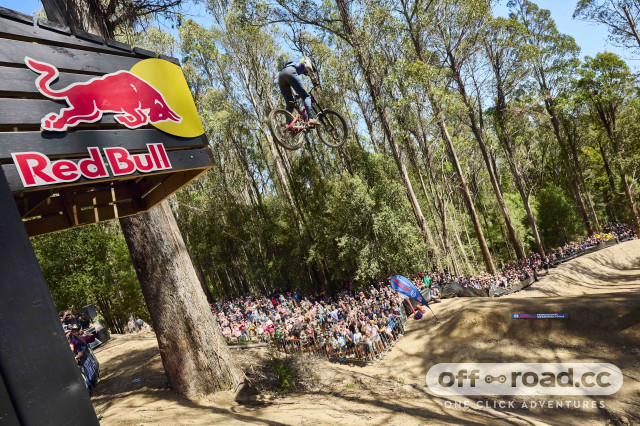
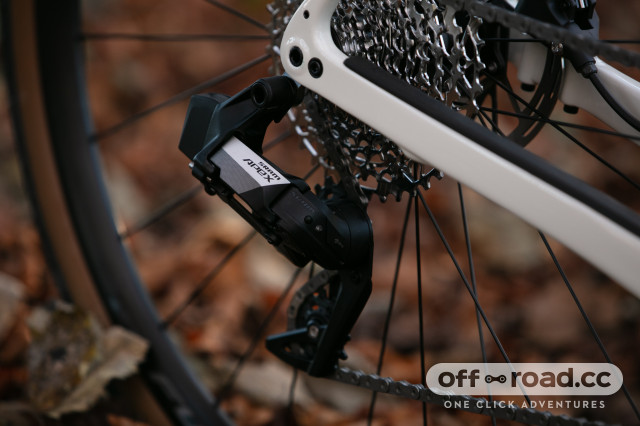
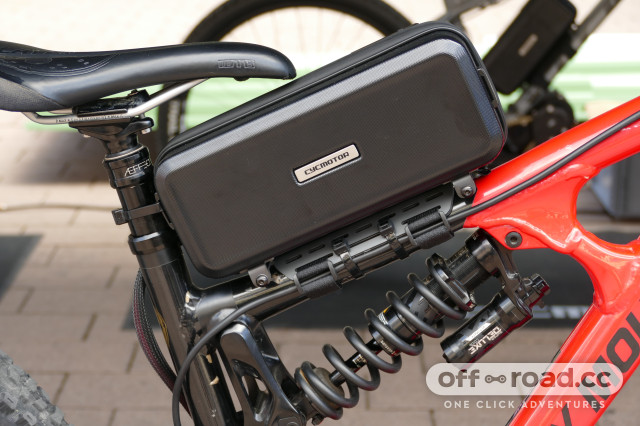
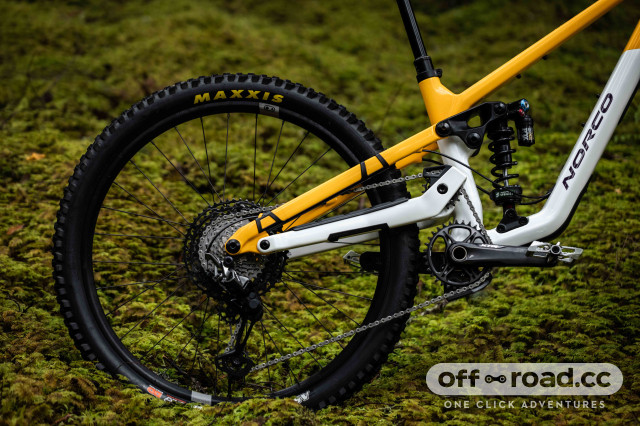



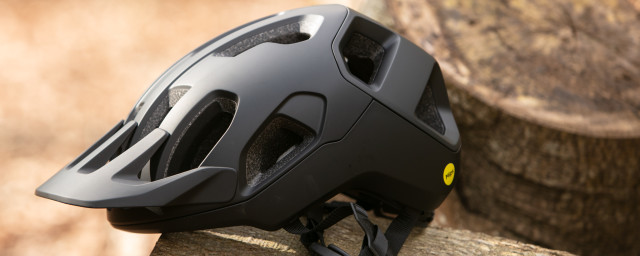

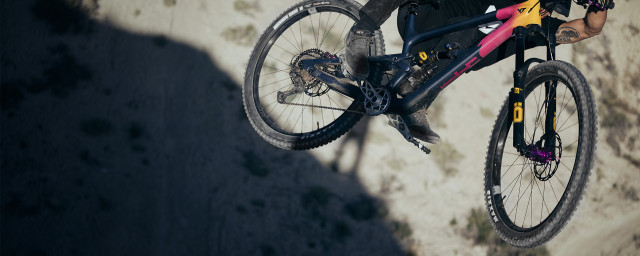
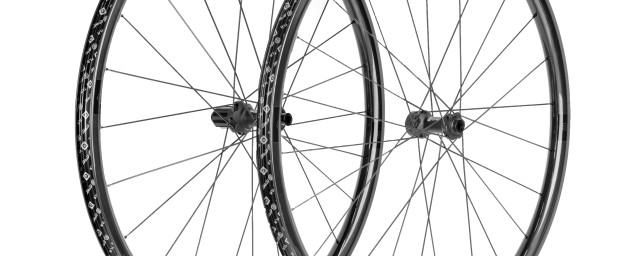



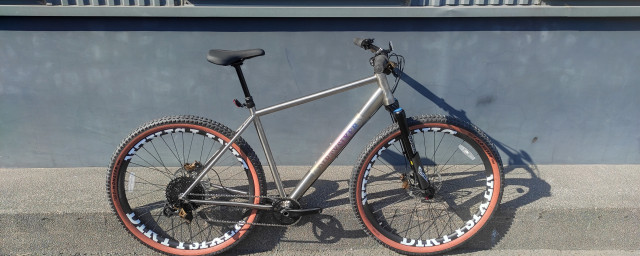
12 comments
Well apart from bikes not even being 200 years old, cheap bikes still exist. Far better bikes for less than 20+years back are also easy to find. The differnce is there is more choice at the crazy high end, which in reality is only ever bought by a very few atypical folk, despite being disproportionately featured in tests.
Bike sales are an issue at moment because of the Covid boom, the subsequent delay in orders catching up, manufacturers not understanding this was a blip and the temp boom meaning the secondhand market being flooded, so less even less need for new bikes. And that's not even taking into account the wider economic issues outside of cycling that mean most folk have less money to spend.
Modern bikes also need far less maintenaince and so very rarely break compared to older bikes. Mechanicals on group rides are the exception now, not the norm as was previously the case.
However, you can still get parts for just any mainstream bike tech, even if like rim brakes, discs have mostly replaced them. Because there are still vast numbers of such bike still sold and being used. Disc brakes are also cheap because don't forget, even that is last century tech now. And of all tech to rail against, that is not a good one because better, more versatile braking is definitely the something you should be very glad of.
I have an old 26" rim brake bike frame I'm thinking of resurrecting for around town usage. I can still get brakes and wheels for it. But alternatively I could actually get frame brazed for discs instead. I have too many rim brake anecdotes and none with discs.
Sorry but all this technology is costing the average cyclist a lot of money, so much so that bicycle sales are falling off dramatically. People don't want to pay for all of that useless nonsense, we have been riding basic bicycles for over 200 years and all of this technology doesn't do a damn thing toward making riding more enjoyable, in fact, it's giving cyclists more of a headache with the increased cost of bicycles and the maintenance costs along with any parts that break, not to mention that as this technology ages, which the track record shows that electronics ages out much faster than mechanical technology, you won't be able to find replacement parts for what you have that you may have bought just 5 years ago!
If you're a pro racer and companies are giving you this technology for free then fine, use it, but don't start spreading the lies that the average cyclist needs this crap, we haven't needed it for over 200 years and we don't need it now.
The bicycle was created to be a fun, cheap, simple mode of transportation, we have taken that concept and ruined it!
I'll happily take you around a couple of our 1990s NEMBA XC + DH race courses on a modern MTB.
I took a mate riding a modern trail bike on our NEMBA 92 XC course in Sheffield a while back. He had 29"/2.4" tyres, 160mm travel front and rear, dropper post and modern geometry. He's a decent rider, yet found it rather challenging to ride the XC course. Steve Peat trained on one of my DH courses in Wharncliffe.
NEMBA races were on serious MTB terrain. Very differnt from the bland non technical courses found down south, that I'd rather use a CX to ride. A friend who moved up North to study said he thought he already knew how to MTB, but felt like a complete beginner all over again on our techy local trails.
Folk who lived in places with rocks, roots and techical terrain rode them on what would now be called a gravel bike. Because that's all we had. So we learnt to ride it anyway, without modern kit.
The big difference for me with modern bikes is the massive reduction in mechanicals and bike faff out in middle of nowhere, in paticular the tranformative move away from crappy inner tubes. Tubeless trumps all other bike tech for me. Because we can finally use the right tyre pressure, instead of tyres pumped way too hard to try to stop pinch flats and we are now really comfortable on bikes in general. This means I can ride any bike, heck even a road bike on very technical terrain. And yes I've done that more than is sensible. . No more need to use Winter MTB tyres either. My fast rolling Summer tyres still work on soaking wet trials littered with roots and rocks. Plus flats are a real rarity
. No more need to use Winter MTB tyres either. My fast rolling Summer tyres still work on soaking wet trials littered with roots and rocks. Plus flats are a real rarity
As for batteries. I'd rather cary a spare AXS mech battery than deal with yet another cable that shredded inside a brifter on my CX bike. Which is a home/workshop, not a trail fix and about the only real mechanical I've tended to get in last decade or so. Thankfully for my wallet, MTB shifters very rarely do that.
..
sorry, I didnt see your comment before I posted the same - but it is good to see we agree
cheers!
the real problem with the new tech is the biz sells that at a premium while pushing out the old tech- rim brakes and their wheelsets are just one example where cyclists are eventually forced to dispense with their ride for want of a spare part
the real problem with the new tech is the biz sells that at a premium while pushing out the old tech- rim brakes and their wheelsets are just one example where cyclists are eventually forced to dispense with their ride for want of a spare part
Big picture, technology is just a way for humanity to use available resources at an ever increasing rate. For bicycles, my preferred level of tech is what I can comfortably build-up and maintain by DIY means. This puts me in the late 20th century with the asthetic caveat of lugs and horizontal top tubes.
Electronic gears may make sense for the professionals and those with difficulties actuating traditional gears but they are appallingly for the planet, they and their batteries are essentially throw away consumer electronics destined for land fill.
If cycling is to be any part of the solution to humanities problems, then less tech is definitely better. Especially since the actual electric and electronics fads don't really ad anything worthwhile to the riding, but instead to the coffers of big industry.
But my biggest beef with this relentless "innovation" is that good quality materials to keep older bikes running are pushed out the doors. In a few years time good quality cables, cable housings, rim brake pads etc. will be nowhere to be found.
Nice article, good to make people think about this.
New technologies and developments are not automatically 'progression', they can also just be diversion. Change, but not neccesarily for the better.
I still ride my 1994 mtb with so much pleasure. Modern bikes are more capable, but that does not mean they are more fun.